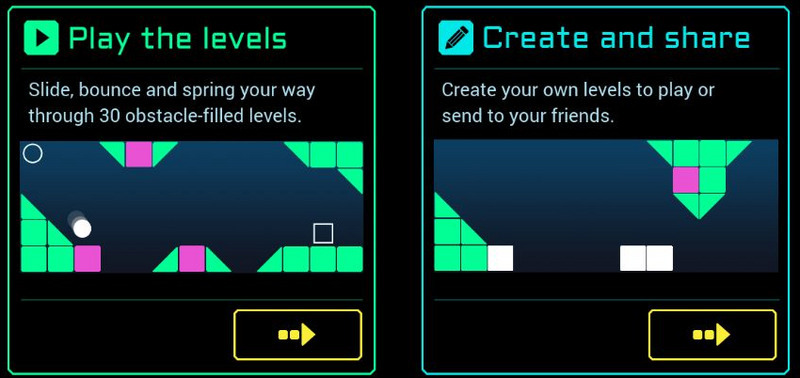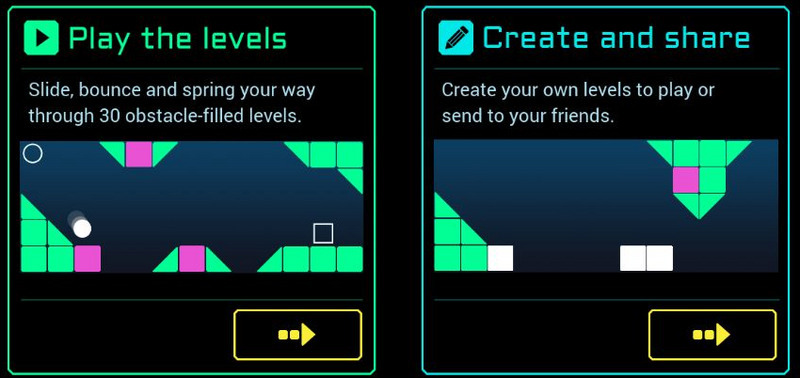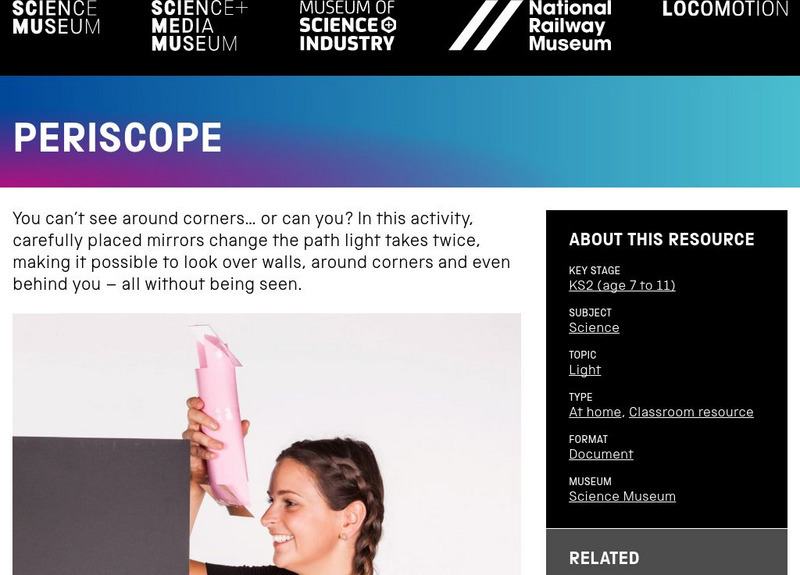Science museums Teacher Resources
Find Science museums lesson plans and worksheets
Showing 182 resources
Science Museum of Minnesota
Science Museum of Mn: The Puuc Hills: Uxmal
Numerous photographs of the ancient Mayan city of Uxmal.
Science Museum, London
Science Museum: Atomic Clocks
The first atomic clock was designed by Louis Essen in 1955. Find out about how it works and how atomic clock technology has developed.
Science Museum, London
Science Museum: Online Stuff: Atomic Firsts
Read about three famous British atomic physicists, each of whom won a Nobel Prize. J.J. Thompson discovered the electron, Ernest Rutherford successfully split an atom, and George Paget Thomson proved that electrons had wave-like properties.
Science Museum, London
Science Museum Online Stuff: Garrett Morgan
An excellent article about inventor Garrett Morgan including information about his two life-saving inventions: the Safety Hood, an early gas mask, and the traffic light.
Science Museum, London
Science Museum: Online Stuff: Huygens' Clocks
Find out about Christiaan Huygens who built the world's first pendulum clock in 1656. The pendulum clock became the most accurate clock in the world for nearly 300 years.
Science Museum, London
Science Museum Online Stuff: The First Flight
An excellent article about how Orville and Wilbur Wright's interest in flight developed and led to the first airplane flight.
Science Museum, London
Science Museum: Online Stuff: Big Clocks
Learn about the development of early clocks from the 14th through to the 19th centuries.
Science Museum, London
Science Museum: Online Stuff: Babbage
Charles Babbage is regarded as the first computer pioneer and originated the concept of a programmable computer. This biography details his accomplishments as a mathematician, philosopher, inventor and mechanical engineer
Science Museum, London
Science Museum: Launchpad Online: Launchball
Use your knowledge of physics concepts like electricity, reflection, magnetism, etc. to complete interactive online puzzles.
Science Museum, London
Science Museum: Making the Modern World: Textiles: Domestic v Factory Production
Twelve-part learning module uses text-based overviews and rich media cut-away scenes to explain the role of the textile industry in driving the Industrial Revolution forward in Britain.
Science Museum, London
Science Museum: Energy Today Quiz
This ten-question interactive quiz from Science Museum focuses on the role of energy used in society today. The questions are answered and explained.
Science Museum, London
Science Museum: Energy Action Quiz
This ten question interactive quiz from Science Museum focuses on energy action. The questions are answered and explained.
Other
Science Museum of Minnesota: Making a Jitterbug [Pdf]
You can make a simple robot using a few simple materials. The directions come from an exhibit on robots at the Science Museum of Minnesota.
Science Museums of China
Science Museums of China: China Giant Panda Museum
Learn all you ever wanted to know about the Giant Panda from the Science Museum of China. Read about the life of a panda, the evolution of the panda, and how to protect the panda. You can even see a "movie" about the pandas. You will...
Science Museum of Minnesota
Science Museum of Minnesota: Experiment Solving Dissolving
Try this experiment to find out what happens to chalk when vinegar is added to it.
Science Museum, London
Science Museum: Launchball
Students slide, bounce, and spring their way through 30 obstacle-filled levels. The activity allows learners to create their own levels to play or send to their friends.
Science Museum of Minnesota
Science Museum of Minnesota: Maya Adventure
This museum site brings you lessons having to do with Mayan culture.
The Franklin Institute
Franklin Institute and Science Museum: Seeing
Take a look at this sight and all of the activities it has to offer. Has great activities to use in the classroom as well as world wide web links.
Science Museum, London
Science Museum: Antenna: Nanotechnology: Small Science, Big Deal
A description of how nanotechnology can manipulate tiny particles and have applications in sports, clothing, foods, electronics, pollution control, alternative fuels, crime fighting, wars, and healthcare.
Science Museum, London
Science Museum: 360 Periscope
Make a 360 degrees periscope which uses mirrors to reflect light to see around corners.
Other
Science Museum: Total Darkness
When the power goes out, it's time for action in our brand new game. Venture into the dark, explore different locations and meet new characters - creating your own unique adventure as you play! Use your science skills to get the power...
Science Museum of Minnesota
Science Museum of Minnesota: Students as Designers
This site provides eight projects to use in an elementary classroom to encourage students to become inventors/designers. Invention, prototyping, materials exploration, creative writing, problem-solving, and group presentations are...
Science Museum of Minnesota
Science Museum of Mn Lesson Plan: Lung Model
In this lesson plan site, students do an experiment, read, and view pictures to learn about the parts of the body that are involved in the breathing process. Contains related links.
Science Museum of Minnesota
Science Museum of Minnesota: From Windmills to Whirligigs
This folk artist uses the power of the wind to animate his whimsical kinetic sculptures. Check out his decorated yard and try some of the activities inspired by his creations.





![Science Museum of Minnesota: Making a Jitterbug [Pdf] Activity Science Museum of Minnesota: Making a Jitterbug [Pdf] Activity](http://content.lessonplanet.com/resources/thumbnails/410020/large/bwluav9tywdpy2symdiwmduymc0yndiyoc0xawvjbnhrlmpwzw.jpg?1589984819)


